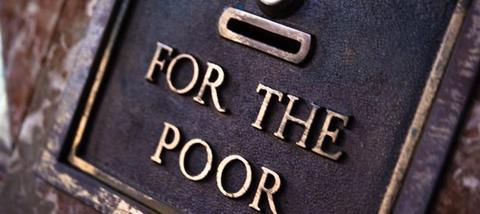
'A tax on charities? Jolly good idea.'
No. Attacks. Attacks on charities.
'Yes, a tax. I’m not usually a supporter of taxation, but by Jove if anyone deserves to be taxed it’s those charities.'
Agh!
There’s a narrative in the media and in society more broadly that is anti charity. Not the idea of it, of course. The sheer number of people who miraculously discovered that they cared about refugees over the last two weeks proves that even the most callously selfish people like the idea of charity, in an abstract sense. But actual charities – particularly big, successful ones, seem to be in the news for all the wrong reasons.
- Oxfam made headlines a few weeks ago for committing the crime of contacting people who said they were okay with being contacted.
- The RSPCA was accused of viewing the elderly as ‘walking wallets’ by one rag, simply for encouraging people to leave legacies and for focusing on mid and major donors.
- Kids Company was all over our news partly because of its failure but more so, if the questions of journalists were to be taken as a guide, for failing to fix all of society.
Some of the media coverage has come predictably from tabloids that like to stoke hate for almost anything, focusing personal attacks on fundraising chiefs of major charities, but the antipathy for charities seems far wider. The government and business sector all seem to love to have a pop at charities these days. Even the UN news agency recently published a ridiculously naive article attacking the very fact that charities have celebrity patrons.
Is this a conspiracy against charities, organised by a shady cabal of anarchists who want to see the world burn? No. It’s far worse than that.
The sickening regularity of attacks on charities has a complex but clear explanation.
Part of the motivation comes from our current Government. If your ideology holds that government should be as small as possible so that the private, for-profit sector can be as large as possible and run as much of the country as possible (as the Tories and much of the Labour right believe), then having a ‘third sector’ that is too powerful is a threat.
There is an extent to which big charities and NGOs, with their research, their often damning reports into the effects of government policy and their hoards of supporters, primed to write letters to MPs and newspapers, can pose a threat to governments bent on handing businesses the keys to the kingdom. It’s in politicians’ interests to see this challenging power weakened.
Businesses, too, have a vested interest in the charity sector being demonised. After all, if the image of the career politician is of a self-serving liar, the image of the successful capitalist in a country of foodbanks and unemployment lines is not better. And when large organisations that don’t pay tax in the way your company does are criticising you for paying slave wages or attacking your overseas supply chain for human rights abuses, of course you’ll support and encourage attacks on the sector.
Journalists, too, must share the blame. Printing the same story day after day just won’t do. The 24 hour news machine demands fresh meat to run smoothly. Taking an original line is the simplest way to make a splash – so why not attack the do-gooders? Everybody already hates the banks and ISIS and the Unions (another victory for business and government), so the fresh, surprising tactic of picking on charities makes sense.
But more to blame than all of them is us. We who hear one story on the radio and believe it to be true. We who pick up a narrative that somehow charities are the greedy and manipulative force in a society saturated with advertising from corporate giants and tax cuts for the wealthy, and believe it. We who are uncritical enough not to notice that, while there is no conspiracy afoot, this particular part of the zeitgeist has powerful allies.
Watch the news over the coming months. I predict you will see a narrative being sown. And I hope that you will resist it. The people and organisations trying to do good for our world (rather than pursue shareholder value or political points), while they may occasionally make mistakes, are a force for the abundant life Jesus wants to see in the world. So many of them are staffed or were founded by Christians.
If we need to pick sides, it’s theirs we should be on.


























